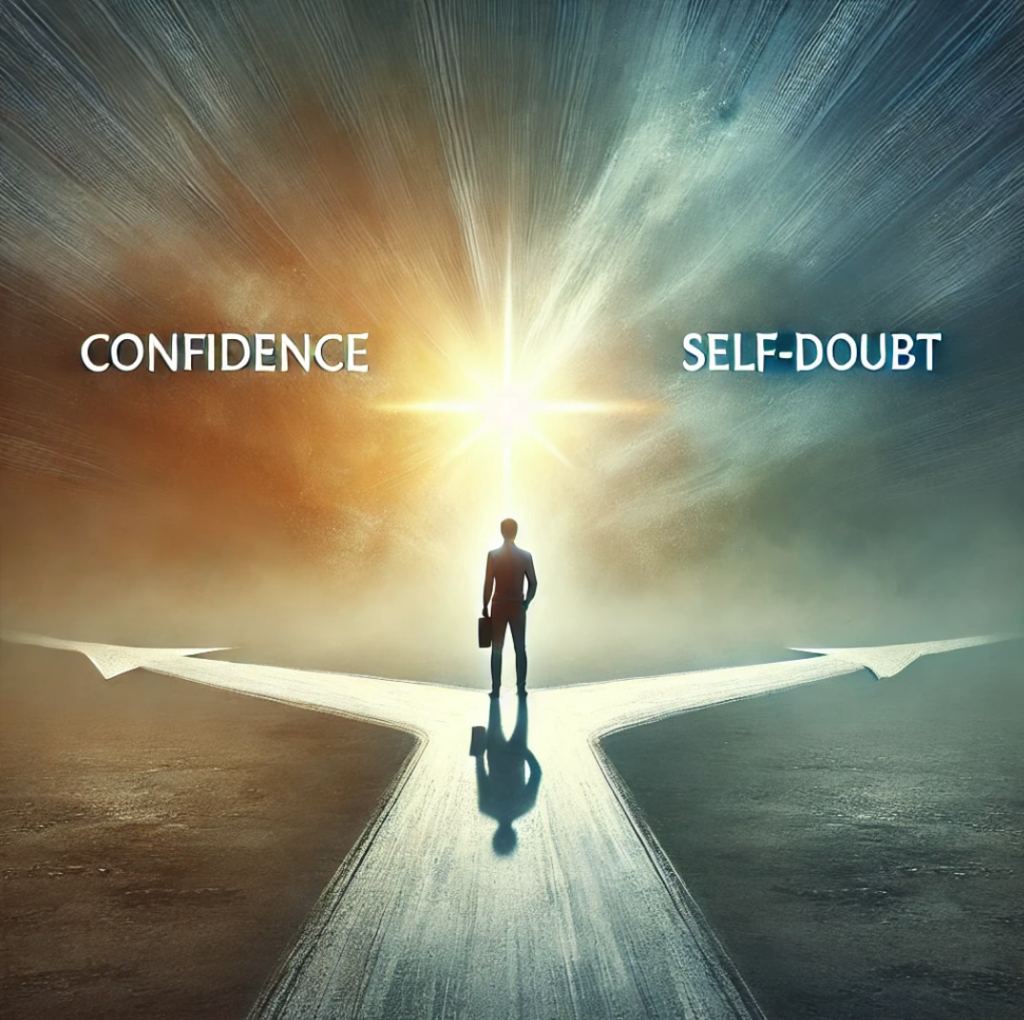The Power of Polarity: The Hidden Forces Shaping Your Life
Polarity is the principle that everything has two opposing yet interconnected forces or aspects. It’s the dynamic interplay of opposites—light and dark, masculine and feminine, expansion and contraction, order and chaos. These forces are not just in opposition but exist in a complementary relationship, defining and giving meaning to each other.
At its core, polarity is about tension and balance. It creates movement, attraction, and repulsion. It governs natural cycles, human relationships, and even the functioning of the mind. Without polarity, there would be no contrast, no growth, no dynamism—just a static state of sameness.
How do you see polarity showing up in your life or work? Are there specific areas where you feel drawn to explore it more deeply?
What Are Core Polarities?
Core polarities are the fundamental opposing forces within an individual’s psyche that shape their behavior, perception, and limitations—often without their conscious awareness. These hidden polarities create tension, influencing how we experience life, relationships, and even success.
Understanding Core Polarities
At a deep level, we all have internal dynamics that pull us in opposite directions. Some common core polarities include:
- Independence vs. Connection – The need for autonomy versus the need for belonging.
- Control vs. Surrender – The desire to manage outcomes versus the capacity to trust the unknown.
- Achievement vs. Fulfillment – The drive for success versus the longing for inner peace.
- Strength vs. Vulnerability – The urge to be resilient versus the need to be open and receptive.
- Logic vs. Emotion – The inclination to think and analyze versus the pull to feel and intuit.
The Hidden Nature of Core Polarities
These polarities often operate below conscious awareness, shaping our decisions, relationships, and self-perception. When one side of a polarity dominates, the suppressed side becomes a source of resistance, self-sabotage, or suffering. For example:
- A man deeply identified with independence might struggle with intimacy but not recognize that his resistance to closeness is the shadow of his autonomy.
- A high achiever may unconsciously avoid stillness and reflection, fearing that slowing down means losing value or relevance.
- Someone who prides themselves on being in control may feel anxiety in situations where surrender and trust are required.
Limitations Created by Unbalanced Polarities
When core polarities are out of balance, they create blind spots:
- Inner Conflict: We feel torn between two seemingly opposing needs, unable to reconcile them.
- Stagnation: If we over-identify with one side, life feels rigid and predictable, and we struggle to evolve.
- Projection: We judge in others what we’ve disowned in ourselves (e.g., a highly disciplined person judging those who embrace spontaneity).
- Sabotage: Our hidden polarity may manifest as self-imposed roadblocks, keeping us from growth or deeper connection.
Integration: The Path to Freedom
The key to working with core polarities isn’t choosing one side but learning to integrate both. This means recognizing where we’ve been unconsciously overidentifying with one side and making space for its counterpart. True power comes from embracing the paradox:
- Independence and connection.
- Control and surrender.
- Strength and vulnerability.
- Logic and emotion.
When we integrate polarities, we expand our capacity to move fluidly between them rather than being trapped in one extreme. We become more dynamic, whole, and adaptable.
Inquiry:
- What polarity might be running beneath the surface of your current struggles or limitations?
- Where do you feel tension between two opposing forces in your life?
- What would it feel like to fully own and embody both sides rather than resisting one?
Let’s go deeper—what resonates with you here? Where do you see this playing out in your own journey?
Embracing Polarity: The Key to Freedom and Growth
Polarity itself is neither good nor bad—it simply is. It’s a fundamental aspect of existence, like gravity or time. What determines whether polarity feels like a source of growth or struggle depends on how we relate to it.
Why Polarity is Essential
Polarity is the engine of movement, contrast, and transformation. Without it, there would be no dynamism in life—only stagnation. Every force in the universe exists in a dance with its opposite:
- Day and night create the rhythm of life.
- Expansion and contraction govern the breath and the universe itself.
- Masculine and feminine energies create attraction, creation, and balance.
- Pain and pleasure give meaning to experience.
Polarity is what makes things come alive. In relationships, polarity creates magnetism. In personal growth, it forces us to evolve by constantly inviting us to integrate what we resist.
When Polarity Becomes a Problem
Polarity only becomes a limitation when:
- We are stuck on one side. Over-identifying with one pole (e.g., always being logical, always being strong, always being in control) creates rigidity and suffering.
- We resist the other side. What we suppress or reject in ourselves tends to show up as external conflict, self-sabotage, or blind spots.
- We fail to integrate both sides. The real power of polarity isn’t in choosing one over the other, but in learning to hold and flow between both.
For example:
- A man who clings to logic and rejects emotion will struggle with intimacy, yet he may blame his relationships rather than see the missing integration.
- A high achiever who overvalues doing and dismisses rest will eventually burn out, believing exhaustion is just the price of success.
- A person obsessed with control may resist surrender so strongly that life constantly forces them into situations that demand trust.
When Polarity Becomes Liberating
True freedom comes from embracing both sides of a polarity rather than unconsciously being trapped in one. This doesn’t mean you have to live in the middle at all times—it means you own both aspects and can move between them as needed.
Imagine being able to:
- Stand confidently in your independence, but also fully surrender to connection.
- Be strong when necessary, but also let yourself be held.
- Take action with fierce determination, but also trust in divine timing.
- Lead with clarity, but also listen deeply to intuition.
This is what makes polarity powerful—it’s not about choosing one side; it’s about learning the dance.
The Big Question
So, is polarity a good thing? It’s inevitable. The real question is: Are you at war with it, or are you learning to work with it?
What’s your gut telling you? Do you feel like polarity has been something you’ve fought against, or something you’ve started to master?
The Consequences of Rejecting Polarity
When someone is stuck in a fixed idea, they are essentially collapsing polarity—reducing reality to a single point rather than allowing the dynamic interplay of opposites. This rigidity limits their range of experience, creativity, and adaptability.
When someone rejects polarity—whether consciously or unconsciously—they:
- Lose access to the full spectrum of experience. They see the world in black-and-white rather than embracing the richness of contrast.
- Miss out on growth opportunities. If they refuse to engage with the opposing force, they block the energy that could propel them forward.
- Feel stuck and stagnant. Without polarity, there’s no movement, no tension to create transformation—just repetition of the same patterns.
- Struggle in relationships. If they’re fixed in one mode (e.g., always in control, always the giver, always logical), relationships lack depth, connection, and attraction.
The Power of Holding Both
When someone allows for polarity, they create a state of dynamic energy. They are no longer fighting themselves or life but engaging with it fluidly. This ability to hold both sides expands their choices, resilience, and creative power.
For example:
- A leader who balances confidence and humility inspires trust.
- A person who can be both driven and at peace enjoys success and fulfillment.
- A partner who can embody strength and vulnerability experiences deeper intimacy.
- A thinker who can hold logic and intuition makes wiser decisions.
The Shift: Moving from Fixed to Fluid
The key shift is moving from rigidity to fluidity—recognizing that both poles have value and learning to flow between them rather than being trapped in one.
A helpful question to ask is:
Where in my life am I clinging to one side and rejecting its counterpart?
What would it feel like to welcome both as possibilities?
So, yes—getting stuck in a fixed idea blocks the dynamic energy of polarity, and opening to both restores flow, creativity, and power. What’s coming up for you as you think about this? Any areas where you see this playing out in your own life or business?
Doing the Work with Deep MCT: A Path to Neutralizing Your Deepest Barriers
If you’ve resonated with the idea of hidden polarities running your life—creating unconscious limitations, inner conflict, and patterns you can’t seem to break—then the next step is to go beyond awareness and actually integrate those polarities.
This is where Deep MCT comes in.
What is Deep MCT?
Deep MCT (Mind Clearing & Transformation) is a powerful inner process designed to dissolve deeply rooted conflicts at their core. It helps you move past mental, emotional, and energetic blockages by uncovering and neutralizing the polarities that shape your experience.
At its core, Deep MCT is about:
- Bringing hidden polarities to the surface (the inner forces pulling you in opposite directions).
- Experiencing both poles fully until they naturally merge.
- Reaching neutrality—a state of inner peace where the charge disappears, and you are no longer unconsciously ruled by the split.
The result? Freedom from inner conflict, a sense of wholeness, and more effortless action in life.
Why Do Deep MCT Work?
Most of our challenges—whether in relationships, business, health, or personal growth—stem from being trapped in an unresolved polarity. One part of us wants A, another part wants B, and we feel stuck in an endless loop of tension.
Deep MCT dissolves this tension at the root, leading to:
✅ Emotional clarity – No longer being hijacked by unconscious fears, doubts, or reactive patterns.
✅ More energy & ease – When inner conflict dissolves, you move forward without resistance.
✅ Deeper self-understanding – You reclaim the disowned parts of yourself and integrate them.
✅ Stronger relationships – You stop projecting unresolved struggles onto others.
✅ Expanded consciousness – You move beyond dualistic thinking and experience life with more flow.
What Does a Deep MCT Session Look Like?
A 1-on-1 Deep MCT session with me is a guided process where we:
- Identify the polarity at the root of your struggle. This may be an obvious tension (e.g., Success vs. Failure) or something hidden beneath layers of thought.
- Bring both poles into awareness. You will experience both fully, without resistance.
- Allow integration to occur. As both sides are fully seen, they naturally merge, dissolving the charge.
- Anchor the shift. Once the conflict is neutralized, we solidify the experience, so it stays with you.
It’s not about fixing anything—it’s about seeing through the illusion of separation and returning to your natural, integrated state.
An Invitation: Do the Work with Me
Understanding polarity is one thing—experiencing the shift is another. If you’re ready to explore your own hidden polarities, break free from the limitations they create, and move forward with greater ease, I invite you to do this work with me.
This is for you if:
✔ You feel stuck in patterns you can’t seem to break.
✔ You’ve done mindset work, but something still holds you back.
✔ You recognize an inner conflict but don’t know how to resolve it.
✔ You’re ready for a deeper level of self-awareness and transformation.
Let’s do the work together. Reach out to book a session or learn more about how Deep MCT can support your journey.
Next Steps
If this resonates, let’s connect.
You can:
Schedule a session begin a conversation to see if it’s right for you.
You don’t have to stay stuck in inner conflict. The way through is not to choose one side but to integrate both—and that’s exactly what Deep MCT facilitates.
Let’s dive in.
Schedule a Free Consultation Today!







